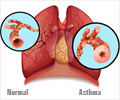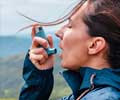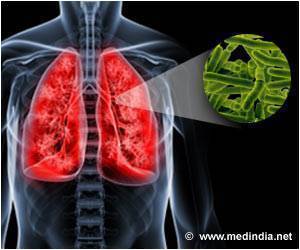A digital self-guided breathing retraining intervention that offers breathing exercises for asthma patients has been found to improve quality of life.

‘Three sessions of face-to-face physiotherapist-taught breathing exercises improve disease-related quality of life for adults with asthma. Equivalent improvements can be achieved from a self-guided digital audiovisual programme.’





Both the DVD and face to face physiotherapy programmes improved patients' asthma-related quality of life scores (over 12 months) compared with those receiving usual care, with improvements that are comparable to those achieved by increasing medication. Neither of the breathing retraining interventions (exercises) improved lung function or airway inflammation, suggesting they were not affecting the underlying biology of the disease. The programmes did not 'cure' asthma, despite improving people's experience of having it. The number of asthma attacks was lower in the breathing retraining groups, but the reductions were not at a level of statistical significance.The NHS healthcare costs were lower for both breathing retraining groups than for the usual care control group, and were lowest when access was provided digitally.1 Savings made by delivering the programme in this way outweigh any technology provision costs. The team has made the contents of the DVD and the supporting booklet freely available through the website http://www.breathestudy.co.uk/.
Asthma affects more than five million people in the UK and costs the NHS and social care (including disability payments) more than 1 billion pounds each year. It led to at least 6.3 million primary care consultations, and 1,160 asthma deaths in 2012. While asthma medications can provide full symptom control for some, a recent European survey suggests this isn't the case for most.
First author on the paper, Professor Anne Bruton, of the University of Southampton, comments: "Our study provides valuable evidence to show that not only can these breathing exercises be of help to people with asthma, they can also be cost-effective - with teaching by DVD much cheaper than in person. Many patients have concerns about taking medicines long-term, so non-drug approaches to control asthma, like these exercises, can be of particular interest."
The NIHR was receptive to calls from patients, carers and clinicians to fund studies looking into ways that could help asthmatics manage their condition. Professor Hywel Williams, Director of the NIHR's Health Technology Assessment (HTA) Programme, says: "We are delighted to have funded this study in an area of research that is important to the public and medical professionals.
Advertisement
"It is important that we continue to fund research in technologies that help people manage their conditions."
Advertisement
"It demonstrates how important technology can be in transforming healthcare and potentially the lives of the 5.4 million people in the UK with asthma. We're urging researchers and innovators to work together to develop ways to help people with asthma through digital means, whether that is through video, SMART inhalers that can monitor the effectiveness of treatment, or apps to help patients manage their symptoms."
The complete research is published in the journal The Lancet Respiratory Medicine.
Source-Eurekalert















